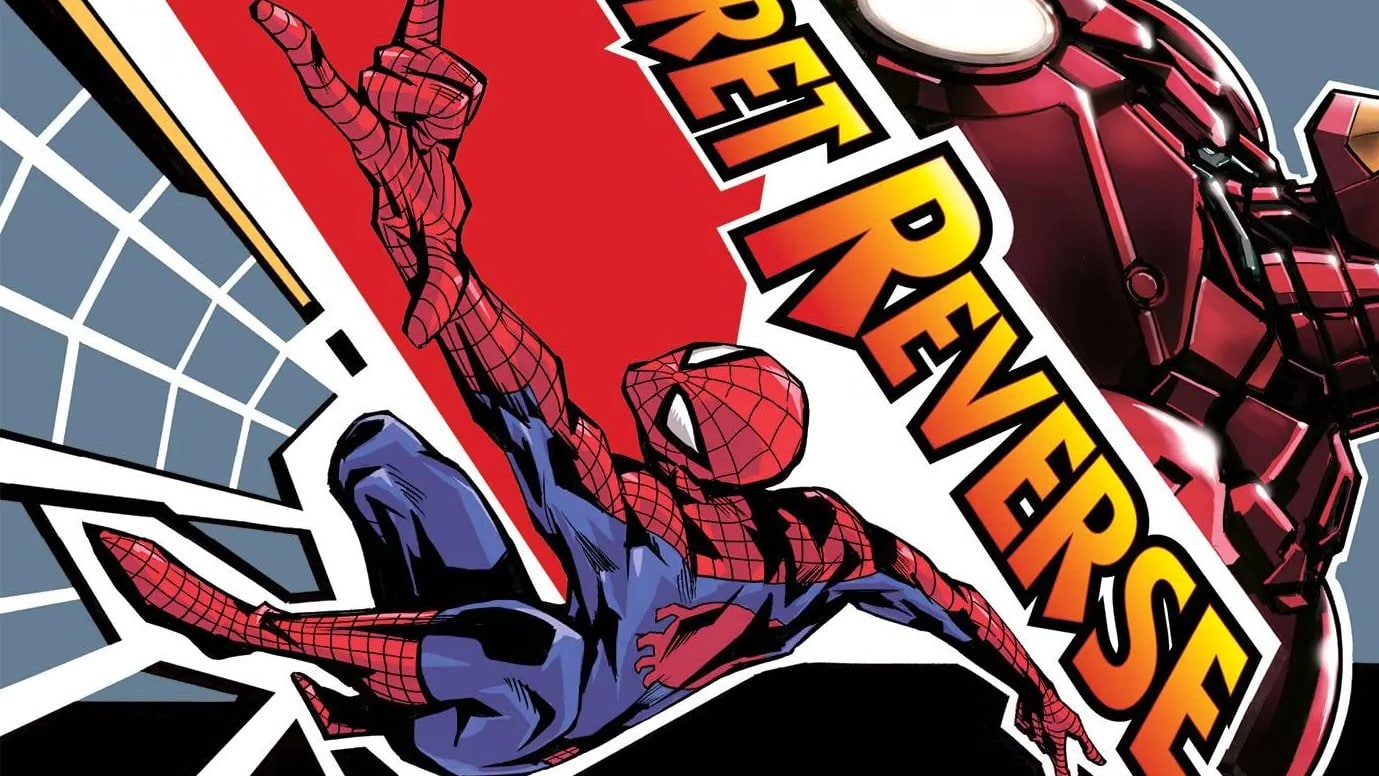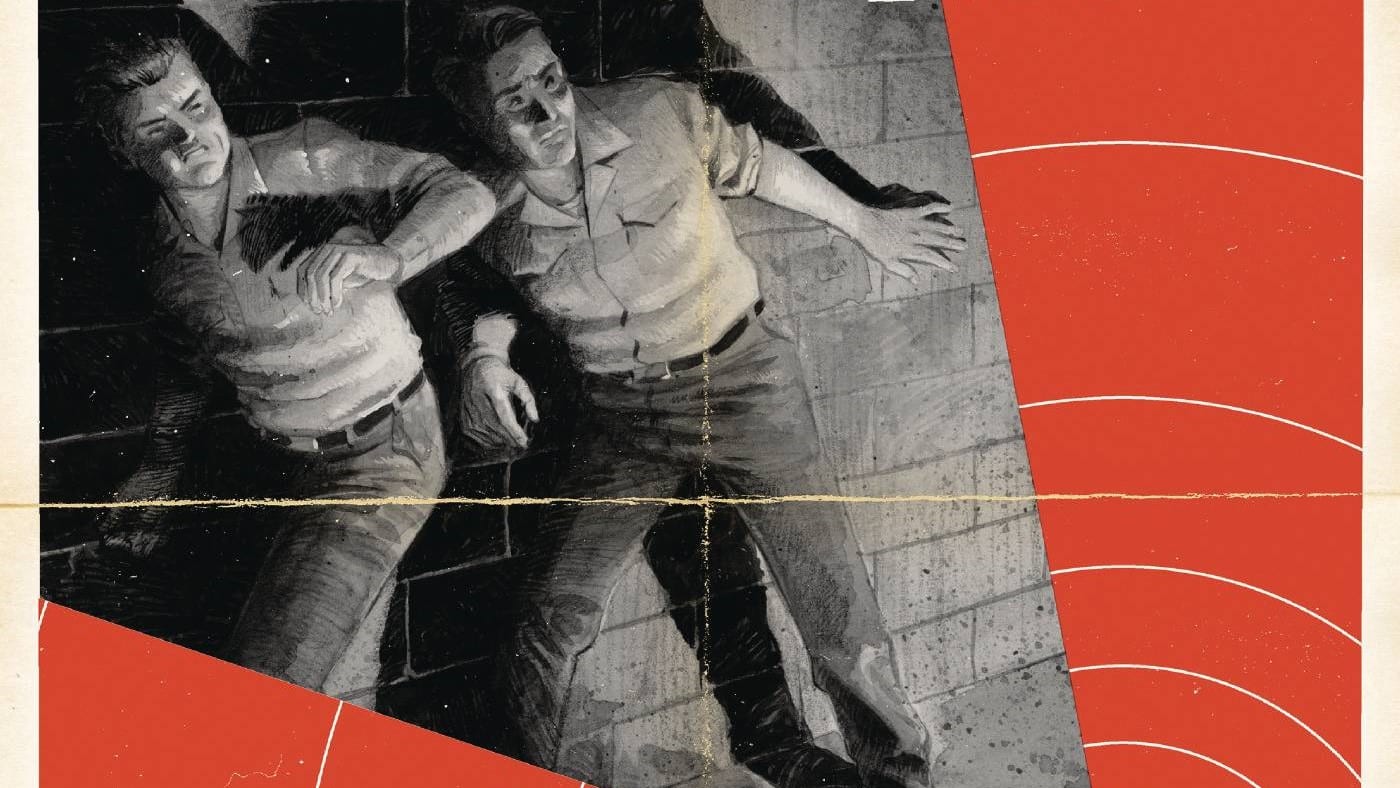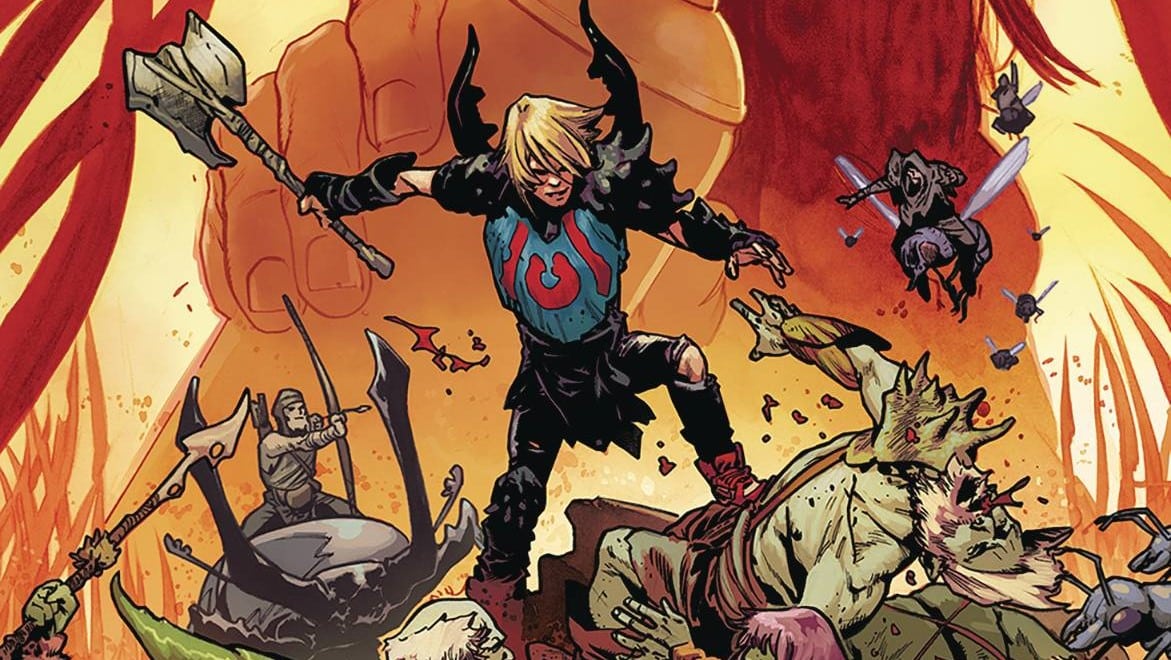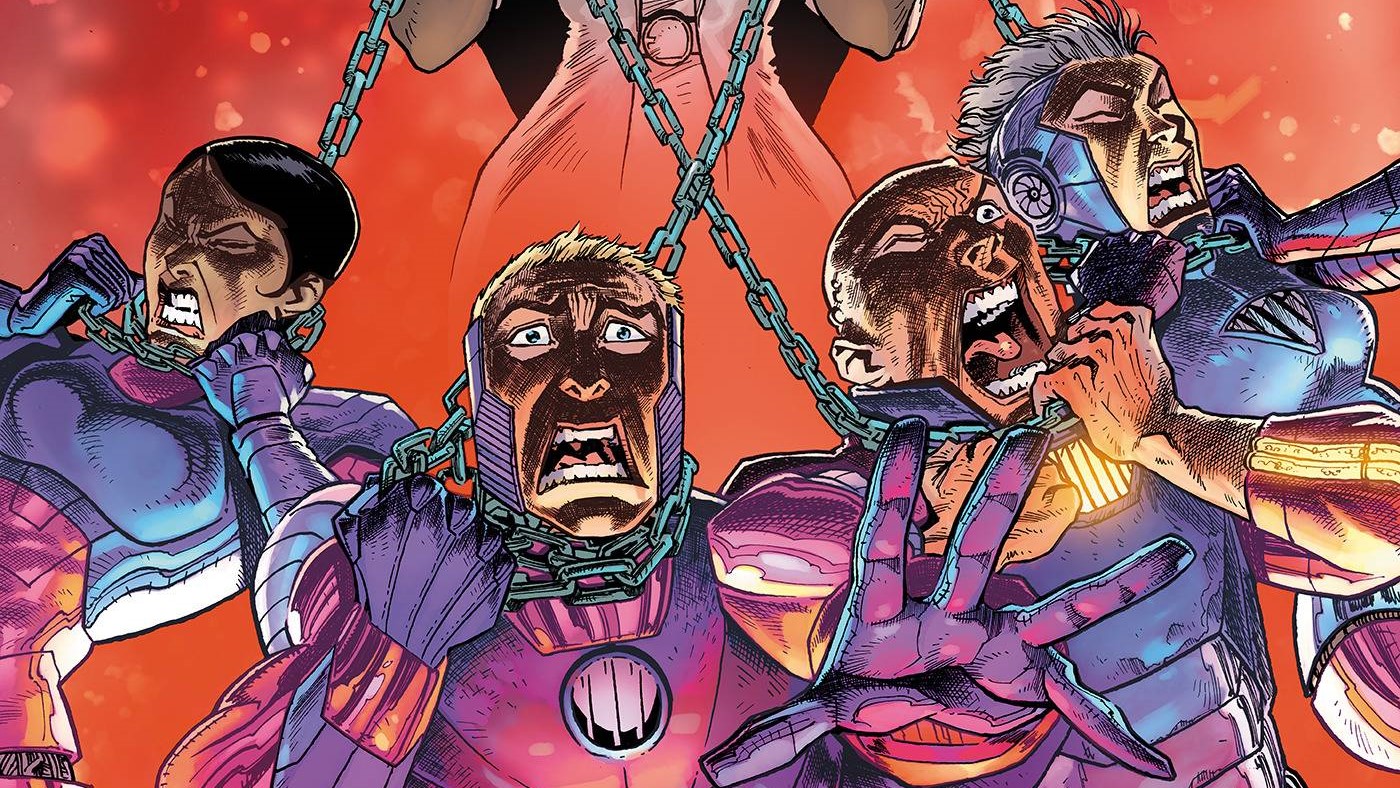We all remember that time Marvel tried to bring the “manga craze” to their superheroes, right? I’m talking about the Mangaverse, a project so ill-advised it barely lasted two years and mainly featured American and Canadian artists doing vague impressions of a “manga style.” That early rush to capitalize on the popularity of manga, brought about by Tokyopop and Toonami, came when manga were just starting to be widely popular in the United States. It had nothing, however, on the popularity of manga today.

Last year, manga outsold the combined efforts of Marvel and DC by something close to 120 times. Reports put the amount of manga sold at 24.4 million volumes, more than double the amount sold in 2020. Today’s numbers make the manga sales during the original Mangaverse seem positively quaint, and it’s no surprise that Marvel would once again look for ways to associate their brand with manga.
Someone at Marvel has learned their lesson this time, though, and instead of relying on their house writers to put out something “manga-ish” they’ve gone straight to the source. Secret Reverse, an Iron Man and Spider-Man story from Yu-Gi-Oh!’s Kazuki Takahashi, is the first of what I can hope will be many attempts. The first forty pages of this volume were released via Weekly Shonen Jump’s online publishing platform Jump+ back in 2019, and this graphic novel release finishes the story with an extra 70 pages. The original Secret Reverse one-shot ended on a “To Be Continued” before vanishing for years, and it’s unclear if Marvel decided to revive the series recently or if plans were just repeatedly delayed by the pandemic.

A knock-on effect of the international success of the Marvel Cinematic Universe is that Marvel properties have become immensely popular in Japan; it’s not unusual to read the author comments in magazines like Weekly Shonen Jump or Weekly Shonen Sunday to see mangaka raving about the newest Marvel release. I can only expect more crossovers to come in the future, and a project working with Kohei Horikoshi once My Hero Academia ends some time in the next year seems all but inevitable.
That’s all in the future – in the now, we’ve got over 100 pages of new Takahashi, his first in the four years since his last series ended in just seven chapters. Takahashi is a natural choice for a Marvel crossover, given the massive popularity of Yu-Gi-Oh! in the United States and his well-known admiration for American comics. Here, Takahashi places Iron Man and Spider-Man in Japan where they go up against an evil game company owner with a device that turns his trading card game into reality – look, if Takahashi wants to play the hits, I say we let him.
Secret Reverse has all the hallmarks of Takahashi’s style, but it lacks a little of the thrill of Yu-Gi-Oh!. At its core, Yu-Gi-Oh! was a gambling manga that built suspense and tension before releasing it in an explosion of supernatural violence. Secret Reverse is a more typical superhero story, and it’s no exaggeration to say that a single action scene takes up over half of this volume. The fight is interesting and well-drawn, but it feels like Takahashi was attempting to conform to the standards of the genre rather than fully utilizing his strengths. The card game in Secret Reverse is simply a way of manifesting physical powers, used for attacking, and there’s none of the mental battles that made Yu-Gi-Oh! so entertaining.
Takahashi is also definitely working the shonen angle in this story, especially with the original Japanese characters whose family drama makes up the emotional core of this story. It’s not particularly deep or innovative (in fact, a cursed trading card tearing a family apart is practically old hat for Takahashi at this point) but it’s serviceable. There’s a kind of dissonance between Iron Man and Spider-Man, and the Takahashi-designed original characters, who are recognizably in his style. It’s understandable that Takahashi would want to set his story in Japan, but the way the excuse for Iron Man and Spider-Man’s involvement is paper-thin. For the Marvel side there’s no real character work, and they come off as caricatures of their movie selves. The original Japanese characters don’t fair much better, made up entirely of vague character archetypes like “concerned but dutiful daughter” and “precocious young boy.”

Despite all these flaws, Secret Reverse is unerringly charming. The book is energetic and light-hearted, and while it may be shallow it is a fascinating artifact in its own right. There’s an interesting fusion of traits from both Western comics and manga: Secret Reverse reads left-to-right, and is fully colored, but it also uses more manga-style layouts and black gutters to denote flashbacks. Takahashi says he approached the work as if he were writing a “Western-style comic,” and the end result is a truly unique combination of forms.
Fans of manga, and especially of Yu-Gi-Oh!, will enjoy this crossover, as there is an authentic charm even in the book’s roughness. Marvel fans looking to see what manga is all about, however, will be better served looking elsewhere.
Ian Gregory is a writer and co-host of giant robots podcast Mech Ado About Nothing.






